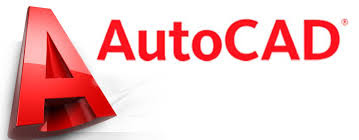Career and scope of learning java:
JAVA is a very popular language for developing variety of
applications. Java is platform independent and operation system independent. It
runs on browsers, desktops, servers and even on mobile devices. Students opting
to study Java have very good career prospects in application programming and
web developed. JAVA is an object-oriented programming language that is class
based and concurrent. It is based on the principle “Write once, run anywhere”
which means that the code which runs on one platform does not need to be
recompiled to run on the other. Advanced Java enhances the Java programming. It
implements advanced concepts like JSP, JDBC, Struts, Hibernate etc. using core
java. JAVA J2EE makes the students job ready, conceptually and fundamentally
strong in the language through hands on approach. Students get plenty of
exercises and projects to test and try all the concepts taught to them. This
training creates a strong foundation for those wanting to take up Sun Java
Certified Web Component Developer examination (SJCWCD). All courses including
JAVA are designed by subject experts and rendered by professionals who have
worked in the technology. Also, NCA as organization has carried out various
projects on JAVA technology and thus has an edge over others offering the same
course. NCA knows what the industry expects from JAVA professionals and has
structured the JAVA J2EE course with real time application requirements in
mind. Thus our students are equipped to be productive from the day 1 on the
job.
Career and scope of learning java:
The scope of Advanced Java programming is huge in India and
abroad companies because of its ability to run on variety of computer
platforms. In the current era of networking, online transaction processing
and managing the dataflow over network becomes an important issue. Knowledge of
Advanced Java programming is essential; for which individuals need to join
Advanced Java training; for managing data on web; developing powerful GUI based
friendly user interface, server side programming and
developing applications for communication over network using object
oriented fundamentals.
So engineering students having certification in Advanced Java training are in huge demand, as a lot of software companies are growing and they always need trained professionals in Java so that the contributions such as that of improved functionality while browsing the (www) can be implemented at regular intervals.
So engineering students having certification in Advanced Java training are in huge demand, as a lot of software companies are growing and they always need trained professionals in Java so that the contributions such as that of improved functionality while browsing the (www) can be implemented at regular intervals.
Steps in learning java:
At NCA we focus on
developing students into professionals, hence it has developed step by step
procedure to mentor students in Advanced Java Training. In order to give a
detailed knowledge it follows certain steps. Firstly the students are given
rigorous training of basic features of JVM, architecture, features of Java
followed by the data types/loops, and features of OOPs and then the
implementation level is brought in concern. After that Advanced Java training
is provided containing different topics which help students to master in each
domain separately.
The different topics are:
• String
• String Buffer and builder
• Exception handling
• Multithreading
Each topic is given due concern and is assured that the students acquire proper and authentic knowledge base without any doubts. After covering these topics student gain confidence to develop the applications based on Advanced Java language.
• String
• String Buffer and builder
• Exception handling
• Multithreading
Each topic is given due concern and is assured that the students acquire proper and authentic knowledge base without any doubts. After covering these topics student gain confidence to develop the applications based on Advanced Java language.
ADVANCED JAVA &
J2EE (JAVA 2 ENTERPRISE EDITION) COLLECTION FRAMEWORK
§
The
Collection Interfaces (list , set, Sorted set)
§
The
collection classes(The array list, Linked list, Hash set, Tree set)
§
Accessing
a Collection via an Iterator
§
Working
with maps
§
Working
with Comparators
§
The
Collection Algorithms
§
The
Legacy Classes and Interfaces(Enumeration, Vector, Stack, Dictionary, Hash
table)
§
Date
and Time Handling



Comments
Post a Comment